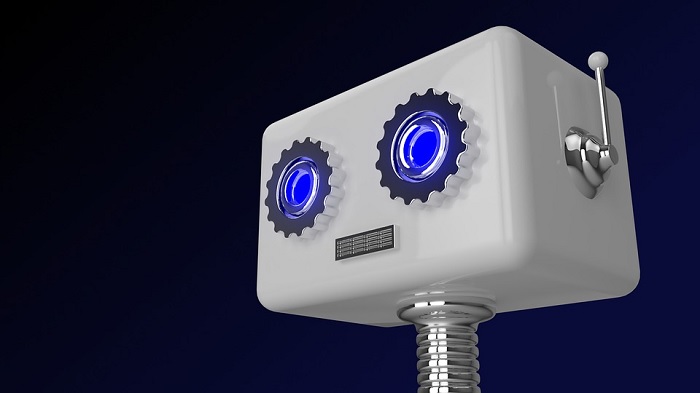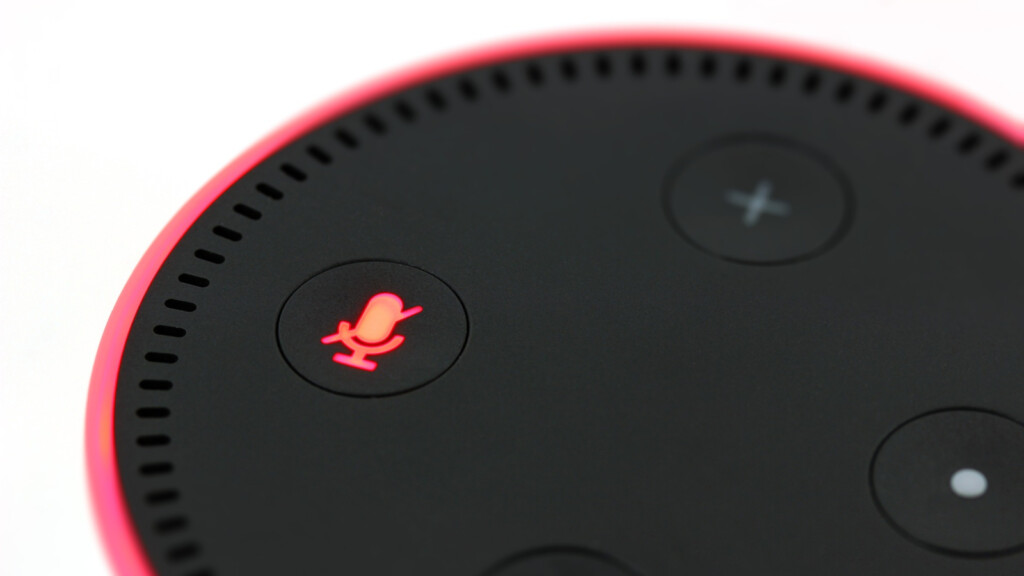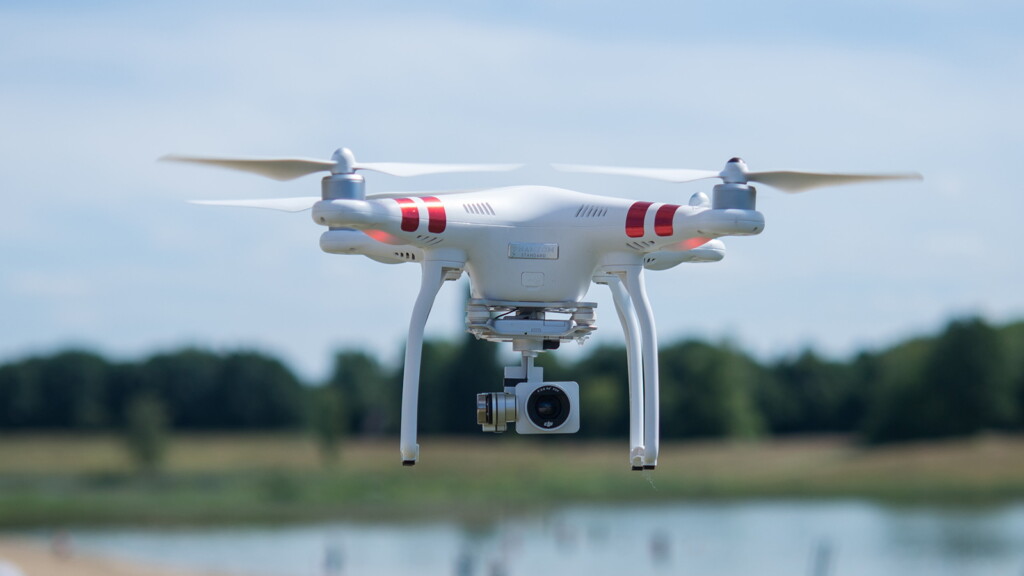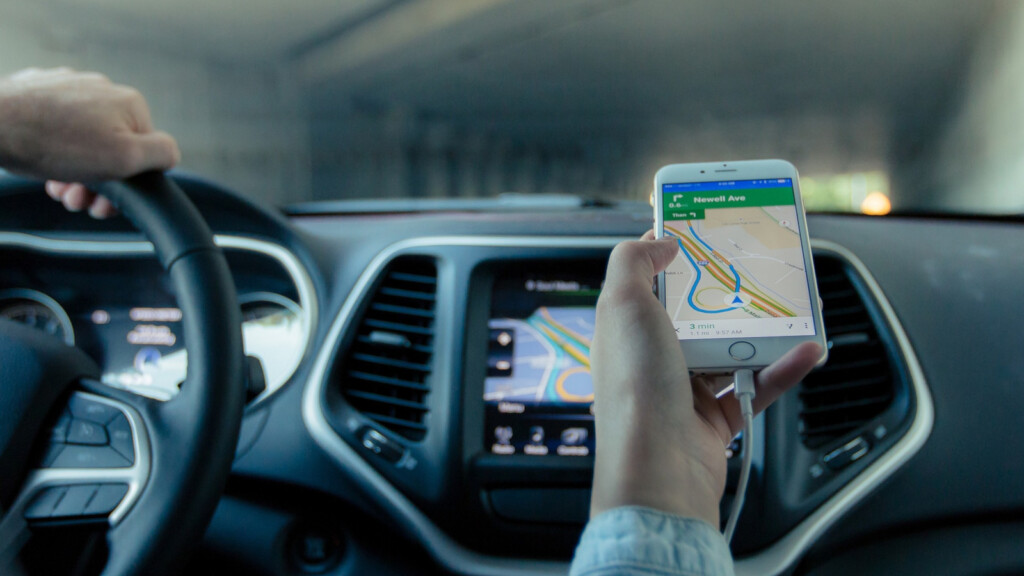How Common AI Applications Affect Our Lives
Most people probably think of Artificial Intelligence as the sort of technology that lives in computer labs or government installations. It’s an “out there” technology that the common person on the street probably can’t relate to much on a personal level. The truth, however, is that AI is already a part of everyday life. Common AI applications are all around us. Whether you know it or not, you’ve probably used an AI product. So let’s look at some of the ways that common AI applications are already integrated. Apparent in almost every aspect of modern life. You might be surprised where AI has been hiding in plain sight.
Spam Filters and Predictive Text
Email is wonderful, spam not so much. Being flooded with dozens, hundreds or even thousands of unsolicited emails is no one’s idea of fun. Many of you reading this might not even remember when spam was actually a problem. Not if you use a modern email service such as Gmail. The system sends almost all spam messages transparently to your spam folder. Non-spam emails are almost never sent to the spam folder in error.
You can thank artificial intelligence for this boon to humanity. Trying to identify which messages are junk mail and which are legitimate is actually a pretty tough problem. Even human beings are fooled some of the time. Otherwise, why would spammers even bother sending out their email floods.
By using algorithms shaped by machine learning methods, email services have become very good at keeping spam away from us and letting people get on in peace. Common AI applications like these are a great example of a better life through AI. Or at least a less spammy one.
Education
If you have fond memories of the college experience, well, you might have to hold on to them. Because going forward college is going to be nothing like it was before. The education technology industry is worth billions and still growing. One of the key components of the market is AI. From adaptive courseware to virtual AI tutors, there’s a place for predictive models and smart interactive chatbots in education.
IBM’s Watson already acted as a student assistant for a whole semester, and no one noticed. Predictive analytics are already giving educational institutions deep insights into which students drop out. Which makes it easier to intervene before it happens.
There are even software packages out there that can mark essays well enough to act as constructive feedback. AI has a bright future in education and even today it's becoming an invaluable tool.
Content Curation
Netflix
This is the golden age of content. You can watch practically whatever you want, whenever you want to. The same goes for music, books, comics and every other form of entertainment media. One of the great things about a service like Netflix is how it can learn your preferences and then predict which shows you’ll like the most.
Platforms like Pandora use AI technology to help people discover music they are very likely to love, based on songs they already like. Quantifying something as complex and subject as human taste in music is a tall order. Yet if you have ever used Pandora you'll know it's an amazing app to discover new music. That's the power of AI in daily life.
Common AI Applications in Machine Vision
If you’ve never tried out AR filters that come built into modern smartphones, you’ve probably been lost on a desert island or something. Recently, a new app that “ages” faces has been a major hit. Despite privacy warnings. We keep seeing stories about serious broadcasts that accidentally activate a whimsical cat filter.
One of the hardest problems facing early AI researchers was how to get a computer to see and understand what it was looking at. It turns out that the process of perception is incredibly complicated.
Deep learning, which simulates the way neural nets work in animals, has given us an answer to this conundrum. The potential of neural nets has been known for decades. Yet the computing power needed to make it useful is more recent. Now you can point a smartphone at someone and an AI algorithm can immediately detect the faces in the scene. Drones can navigate spaces without crashing into anything and then also follow objects they pick out of a scene.
You can probably imagine that giving the power of sight to a machine is very useful, although it can also be very controversial.
IoT and Household Automation
It’s been happening slowly but surely - home automation is here for good. The Jetsons has been a hyperbolic metaphor for utopian futures for decades, but the promise of home automation might actually mean that not too far in the future you’ll be living in a home as automated as the ones from that old cartoon.
As of today, if you have the budget for it, you can practically control your entire home using home automation tech, but what you might not know is how much artificial intelligence is built into these systems. Take, for example, the Nest Learning Thermostat. It uses AI technology to adapt your home’s temperature controls to something that both ensures things are always comfortable, while also saving on energy bills.
The same goes for just about every aspect of home automation. Modern connected devices observe and learn how your household operates. To you, it might be invisible, but it could be something as simple as switching on the water heater just in time for showers or automatically adjusting the light to suit regular activities.
AI also has applications in home security, with cameras that can recognize the proper owners of the home and systems that can call emergency services in the case of a fire or burglary. As our homes get smarter and smarter, it's likely that no part of your home life will not somehow depend on a form of AI.
FinTech
For most people, the global shift to digital has made using financial services much better. Getting a loan approved used to be a paperwork and travel-filled process that involved human workers poring over your details and making a decision on whether to help you out or not. These days, you can often get a loan or other financial product from your banking app, with almost instant approval. Digitization has made working with money cheaper and easier. It’s made the movement of money through markets faster and it has even helped curb many forms of crime and fraud.
The overall field of financial digitization is often referred to as FinTech and it’s a hot area right now. It’s also the perfect place to use AI. Because in the financial world, making good decisions and good predictions is what it’s all about. So when you apply for a loan these days, chances are some sort of AI process is being applied. Kicking in when deciding whether to give it to you or not.
Underwriting, risk, credit profiling and all the other related tasks involved in daily financial life are being handed over to machines. This comes with the same caveats as using this technology in other areas of life. That is, machines sometimes make decisions humans wouldn’t. You can’t get sympathy from a robot bank manager after all. Regardless, in the greater scheme of things, it makes money easier to work with and speeds up transactions exponentially.
Trading stocks on the international market? Chances are decisions to buy or sell are being made by an AI and trading competition is happening between AI brokers that can make millions of trades in seconds.
Economics is a notoriously difficult field, but with AI and almost total digitization, we might gain more control and understanding of market forces than has ever been possible.
Medical Science
Medical science has improved so much over the two centuries or so, it’s almost completely unrecognizable. We went from not understanding that doctors have to wash their hands before surgery in 1847 to rewrite our genetic code. We are even creating artificial organs. Modern medicine is on the cusp of great things, with medical 3D printers and other advanced technologies making things possible that were science fiction just a decade ago. Yet the biggest revolution may come thanks to AI software.
Artificial intelligence is already playing a big role in medical science. For example, we are starting to see the use of deep learning technology to quickly and accurately diagnose diseases based on things like MRIs, X-rays or photographs. Diagnostic AI is already as good as dermatologists at spotting skin cancer, which means they might even be better than your first-line general practitioner.
AI-assisted surgery is also starting to make its mark in the field. We’ve had robotic surgical systems like the Da Vinci for years now, but they have been fully operated by a human. Now, it’s becoming possible for AI software systems to work with human surgeons to achieve something equal to more than the sum of its parts.
It’s not hard to imagine a future where deep learning algorithms watch your heart rate data from a wearable or looks over pictures of your face or body parts to infer potential diseases. AI hopefully means a healthier future for everyone and, for now, that seems to be where we are heading.
Chatbots
Conversational user interfaces or “chatbots” as most people know them are perhaps the most famous face of artificial intelligence. In fact, the Turing Test, which is meant to show that an AI is equal to a human, basically describes a hyper-sophisticated chatbot.
While most people will pick up pretty quickly these days that they are chatting with a machine, modern chatbots have become very convincing. They are also being used just about everywhere all of a sudden.
Personal assistants like Siri, Cortana, and the Google Assistant come built into almost every device. Most major websites now have a customer service chatbot that will pop up to help you with queries. Of all the depictions of AI in fiction, this is the modern real-life example that most closely matches it.
Your Whole Smartphone
Smartphones have become the first point of contact with the digital world for most people. Which means it's also a portal to various AI algorithms and agents. AI is involved in just about everything that makes a smartphone, well, a smartphone.
Assistants like Siri and Cortana are obvious examples. Then you have all the machine vision technology that helps touch up photos or adds filters to faces. Predictive traffic and scheduling software. In fact, most of the day-to-day AI tech we discuss in this whole article is probably present in your smartphone to one degree or another.
Drones and Self-driving Cars
What’s that you say? We don’t have self-driving cars yet? Well, you are right in the sense that there is currently no completely autonomous car you can buy or take a ride in. However, carmakers have been taking away control from drivers stealthily for decades. Those systems that sense impending collisions and apply the brakes are one example. Systems like the Tesla Autopilot are the most sophisticated version you can buy.
These systems make use of multiple AI technologies to solve the problem of driving a car. A hard problem in the unpredictable environment of the real world. If your current car is fairly modern, it probably has more than a few automated safety systems in it. That could save your life one day. Many of these are also controlled by complex AI algorithms crafted from machine learning applied to stacks of data on crashes and safety information.
If we look skywards, engineers have packed drones with AI. Just the regular old premium camera drone anyone can buy off the shelf has sophisticated machine vision and spatial navigation AI. Buy a premium drone today and you can let it take off, fly a route and land all by itself. It can track objects using machine vision and avoid obstacles with the addition of specialized sensors. Some drones can even understand hand gestures and voice commands.
Right now, companies like Kitty Hawk are working on autonomous passenger drones. Which might make the demand for self-driving cars less urgent. Since it seems that navigating airspace is easier than navigating complex urban zones.
Video Games
Plenty of people are now gamers. Whether they think of themselves as gamers or not is irrelevant. The fact is that video games are right up there with books, films, music, and television. Beloved as a major international pastime. What most of those people realize is that video games are one of the earliest places regular folk have encountered artificial intelligence.
When you play a video game against the computer, you are matching wits with some form of artificial intelligence. Game "AI" might be incredibly rudimentary. In some games, it's highly sophisticated.
Massively popular game The Sims 4, incorporated highly-sophisticated AI to drive the behavior of the little simulated people featured in the series. In order to make them more believable as people. To this end, the developers built an incredibly complex AI model. That let them dynamically navigate their world and make decisions about what to do.
In the future, game AI might become so advanced that we can have dynamic conversations with NPCs. We could have enemies that learn and come up with new strategies to challenge us. It might one day be hard to tell the difference between an AI character and a human one.
Marketing
Marketing is a sophisticated field. It's tied closely to psychology. As well as the general study of human behavior. When you see an advert on TV, it's the end result of hours of research and data analysis.
Understanding what humans find appealing and how to persuade them to buy something is the lifeblood of marketing. So it should be no surprise that marketers apply deep learning methods to marketing data. To profile potential customers and target marketing with laser focus.
The applications of this sort of analysis go even further. There's plenty of speculation that politicians have used machine learning techniques to gain advantages when campaigning for elections. Whatever you're selling, in modern times you need the insights of powerful machine intelligence to get the edge you need.
Navigation
I remember with great trepidation the days before GPS and navigation apps. Trying to drive along an unknown route is a nightmare to me. Now most of us will simply ask our phones to get us where we are going. But there’s a lot of sophisticated technology that lurks behind the friendly GPS lady’s voice.
In the early days of consumer GPS technology, you'd have a standalone device loaded with offline maps. It would read the GPS signal and then tell you where you are. Units planned routes using relatively simple algorithms. Also, the device had no additional data. Other than GPS position, to use when calculating routes.
These days, most of us use applications like Google Maps to get from point A to point B. Early GPS units were on their own. However, these map applications are hooked into the cloud. Data flows in both directions. Navigation companies use Machine learning technology in the data center to enhance navigation. So now the app learns where you work and live. Without you explicitly giving them information. It preemptively tells you when to leave, even before you ask it to. The same goes for predicting traffic or dynamically rerouting everyone to ease the traffic you'll experience. At some point, self-driving cars will become the norm. Then this technology will be even more powerful. Since, presumably, those vehicles will "talk" to each other.
Transport and Logistics
The world of modern logistics is an incredibly complex one. Almost every product or service we use on a daily basis is the result of an intricate dance. Thousands of factors have to come together. Just so that, for example, a truck delivers fresh milk. On-time and at a price people can afford. All the materials and components needed to make a car or a smartphone need to be in the right place at the right time. Otherwise, we can't have these modern marvels at all.
The computerization of logistics, the science of transporting goods, has been a massive boon. Deep learning technology and predictive analytics can help companies work out the most efficient routes. It can help minimize accidents, save fuel and reduce the number of vehicles needed.
Amazon, the massive online retailer, thinks that complete automation of shipping in their business will happen no sooner than 2029. However, even today companies have automated large parts of the logistics chain. With just a few key tasks left to human minds.
Common AI Applications and You
After reading through these examples, you might have a range of feelings when it comes to AI. The infiltration of this technology has been rather stealthy. It can be pretty disconcerting to realize that your phone or TV is listening to what you say. Perhaps even making sense of it. It's even scarier to think that more advanced AI could one day be applied to data captured about you in the past. Revealing things about you that you'd never want the world to know.
Like any technology, figuring out the rules of acceptable use is subject to growing pains. We have a powerful new toy and people are racing to apply it to everything. Which means introducing new problems just as we solve old ones.
Let us know down below in the comments. Lastly, we’d like to ask you to share this article online. And don’t forget that you can follow TechNadu on Facebook and Twitter. Thanks!









